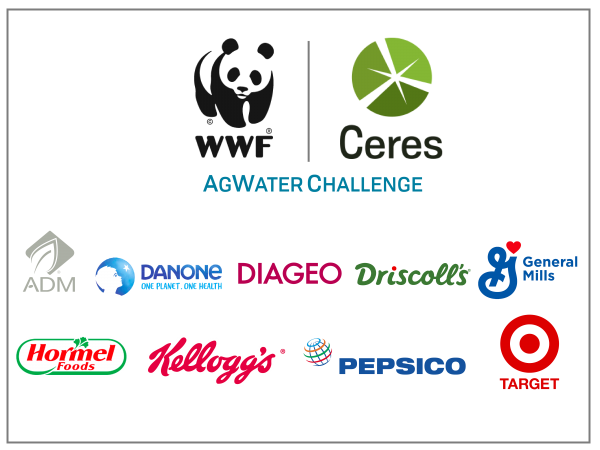- October 16, 2019
by Kirsten James, Director of Water at Ceres, and Nicole Tanner, World Wildlife Fund’s Water Stewardship Lead
Chances are if you’ve bitten into a strawberry, blueberry, blackberry or raspberry lately, it was supplied by the world’s largest berry company, Driscoll’s. With products sourced from 21 countries, and sold in 48, Driscoll’s supplies one third of the global berry business.
But growing berries can be a water intensive proposition, with the added challenge that prime growing regions are often located in areas of high water stress. Eighty percent (80%) of Driscoll’s acreage globally can be found in California and Mexico, regions which coincide with significant water risks to businesses and the communities in which they operate.
Having weathered drought conditions in their North American growing regions through much of this decade, Driscoll’s doesn’t want to leave much to chance. They recognize that financial success and water stewardship go hand in hand. Driscoll’s sees smart water management as a business imperative to ensure its growers can continue to produce for decades to come.
To this end, we are pleased to announce Driscoll’s is taking their water stewardship one step further, becoming the next company joining the Ceres-WWF AgWater Challenge. Through new ambitious commitments focused on their North America supply chain, Driscoll’s seeks to reduce their water impacts and help ensure sustainable water supplies in the basins in which they operate.

Ceres and World Wildlife Fund (WWF) launched the AgWater Challenge in 2016 to encourage better and more strategic water stewardship among the most influential food and beverage companies. Driscoll’s joins eight existing AgWater Challenge participants — representing over $264 billion in annual revenue. Through engagement from Ceres and WWF, the AgWater Challenge helps companies refine their approaches to sustainable sourcing and water stewardship in their supply chains.
The global food sector uses 70 percent of the world’s freshwater supply, yet water supplies face catastrophic threats from the combined effects of climate change, pollution and mismanagement. By 2025, half the world’s population will live in water stressed areas. Given these pressures, food and beverage companies must do more to value and protect freshwater in the regions they operate by reducing their impacts and partnering to protect and restore critical watersheds.
With a value chain that includes approximately over 700 independent growers, Driscoll’s has set long and near-term water stewardship goals for its Americas business unit, including several time-bound measurable commitments to address water quality challenges across their value chain. These include:
- Complete water risk assessments for all existing and new growing regions in the Americas and integrate them into the company’s fruit supply planning process by end of 2021.
- Create a water policy and framework by end of 2020 which encompasses regional risk assessment, stakeholder impact and engagement, public policy engagement, roles and responsibilities, critical issues and responses, and internal targets and goals.
- Identify key water impacts and set new goals to reduce water impacts in each high-risk sourcing region.
- Provide training for every grower and functionally relevant employee in highest risk districts, with additional training and resources to be provided to growers who wish to engage in water management planning at the community level.
- Convene company peers in California regions (e.g. buyers, producers) to share learnings from California’s Sustainable Groundwater Management Act implementation and develop a common voice of support around the successful implementation of Groundwater Sustainability Plans.
In addition, Driscoll’s has committed to implement relevant regional programs and BMPs that help meet groundwater sustainability plans in California and support stakeholder activities that ensure high quality water is accessible, affordable and reliable to all members of the community.
Driscoll's new commitments build upon a solid foundation of existing efforts to manage water collaboratively, including their deep involvement in the passage of California’s 2014 Sustainable Groundwater Management Act (SGMA) and its ongoing implementation. As a leader in the industry they are setting a strategic example that water stewardship is a top priority. And by joining the AgWater Challenge, Driscoll’s is sending a clear message— smart water management is a business imperative.
Kirsten James is the Director, Water at Ceres. Ceres is a sustainability nonprofit organization working with the most influential investors and companies to build leadership and drive solutions throughout the economy.
Nicole Tanner is World Wildlife Fund’s Water Stewardship Lead. WWF is one of the world’s leading conservation organizations, dedicated to delivering science-based solutions to preserve the diversity and abundance of life on Earth, halt the degradation of the environment and combat climate change.



